WATCH: The week that was - from Vinod Khosla on innovations and opportunities in the startup ecosystem to the future of bike taxi companies in India
This week, we bring to you an exclusive interaction with veteran investor Vinod Khosla, the future of bike taxis in India amid regulatory issues, and more startups with innovative solutions.
We kick-started this week with someone who has inspired millions of engineers to go global with their ideas. In fact, he also inspired Google CEO Eric Schmidt. Vinod Khosla, Founder of Khosla Ventures, is a veteran investor who believes in backing technology that makes an impact on people's lives.
In one of his most candid interviews, he speaks to us about innovation, the opportunities that excite him, the red flags in the startup ecosystems, and the one thing he’s still not seeing in India.
Speaking of red flags, shared mobility is running into some very tight corners with government regulations. The most impacted are the bike taxi services.
Startups in this space may be the need of the hour, owing to rising traffic congestion levels, but very few have been able to penetrate the Indian market. Rapido, Ola Bikes, and uberMOTO are among the few to have survived but only after navigating through many a regulatory hurdle.
Earlier this year, regional government transport officials cracked down on bike-hailing services startups by seizing several vehicles, and accusing them of operating illegally. State traffic authorities of Karnataka, Maharashtra, Tamil Nadu, some parts of Andhra Pradesh, and even Madhya Pradesh have deemed bike-hailing as illegal. It's going to be a tough call and policy must catch up with innovation and ensure speedy ease of business.

How long will Bike-taxis play the regulatory battle?
On the other hand, meet this Delhi startup that wants to reduce such shocks, at least electric ones. EBTL or Engineer Bringing Technology to Life was founded by Monish Salhotra, Saswat Sahu, and Rajbir Singh in 2011. It focusses on the home automation segment where an ordinary electric switch panel is transformed into a hi-tech but simple to use device connected to the internet.
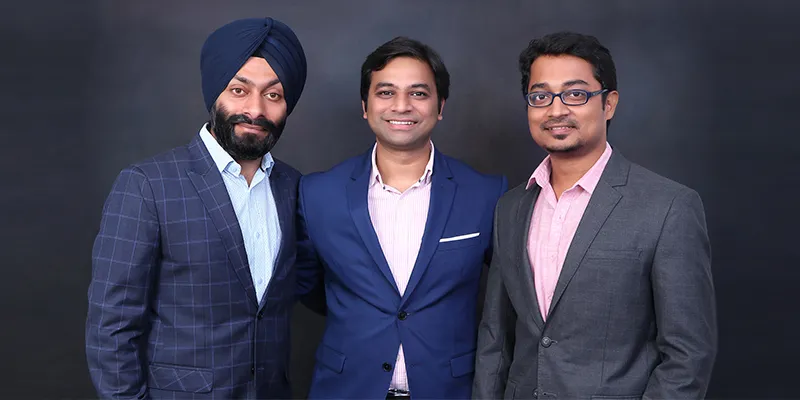
EBTL founders seen from left: Rajbir Singh, Monish Salhotra and Saswat Sahu
Inspired by NASA’s Curiosity Robot, these engineering students teamed up to design a surveillance rover for the army. They developed a multi-terrain surveillance rover without human interference that also self-destructs and shoots intruders.
Raj Gandhi, along with friends - Shivraj Jadhav (22), Aniket Jhadhav (22), Mayur Shinde (21), Bhagyashree Sarode (21) and Khushboo Singh (21) – from Bharati Vidyapeeth College of Engineering, Navi Mumbai, formed Team Shaurya last year to work on this idea using Rocker Bogie mechanism (a rover with no springs or stub axles for each wheel, which allows it to climb over any obstacle).
The rover is equipped with sensors that can track information like temperature, humidity, amount of gases in the environment, and it can even tilt. Additionally, it has a GPS module embedded to track its movements.
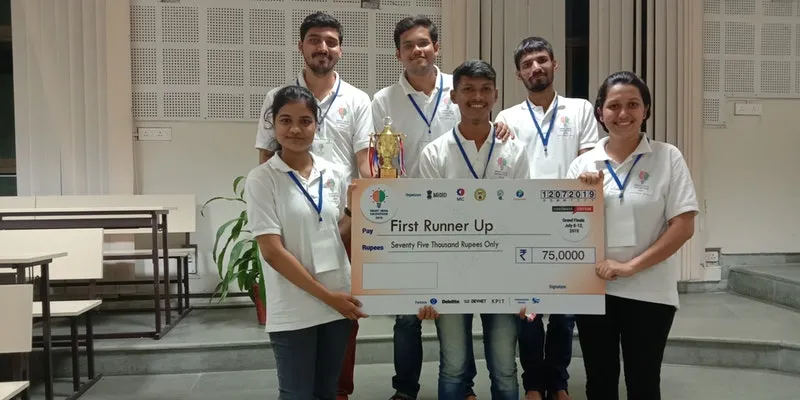
Team Shaurya
Healthtech startup Medcords has, till date, covered nine lakh people from 2,300 villages across four districts in Rajasthan and digitised their health records. It uses tie-ups with medical stores to enable villagers to consult doctors sitting far away from them, saving time and money.
Founded by Shreyans Mehta in 2017, the healthtech startup makes healthcare easily accessible to the rural and semi-urban populations of India.
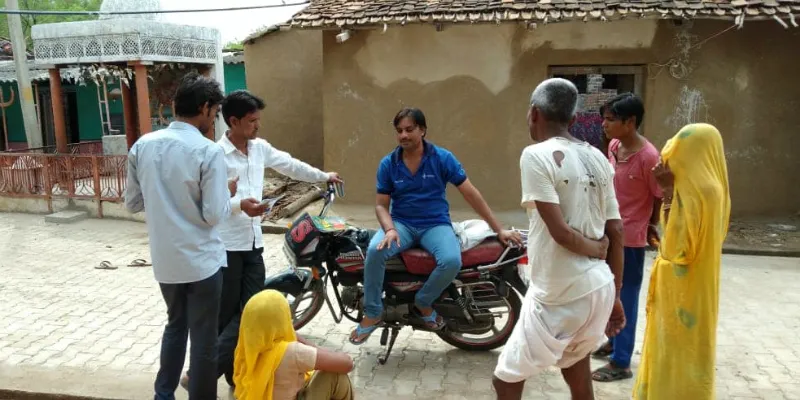
A Medcords representative educating the villagers about the benefits of the tech platform.
In 2010, when Sumona Karjee Mishra found out she was pregnant, like any new mother-to-be, she was ecstatic to welcome her child into the world. However, in the 26th week of her pregnancy, she suffered from a rare pregnancy disorder called preeclampsia. Her baby was born premature, weighing only 960 grams.
A PhD holder from the International Centre for Genetic Engineering and Biotechnology at Jawaharlal Nehru University, New Delhi, Sumona resolved to take matters into her hands. She started extensive research on this pregnancy complication, and discovered that she was among a large and growing number of women who suffer from this rare condition, for which no early diagnosis was in place.
Thus, Prantae Solutions was born. The Bhubaneswar-based biotech startup develops diagnostic solutions and devices with a primary focus on pregnancy healthcare and other related disorders. Sumona’s first product, EyeRa, is an early detection platform for preeclampsia.

Sumona Karjee Mishra with her daughter, Shravya, who inspired her to start Prantae Solutions.
Watch other video interviews, stories our viewers loved this week:
Autovert helps you lease an EV with just a click.
Founded by Uday Disley and Sachin Mehta, Autovert is making it easy for people to lease electric vehicles. At present, at least 10 percent of Ather’s vehicles have been leased through this startup. Autovert’s business model is to make money on the monthly rental, which factors in the debt taken from the NBFC. After the lease period, the vehicle will be sold to the pre-owned market for fifty percent of the cost.
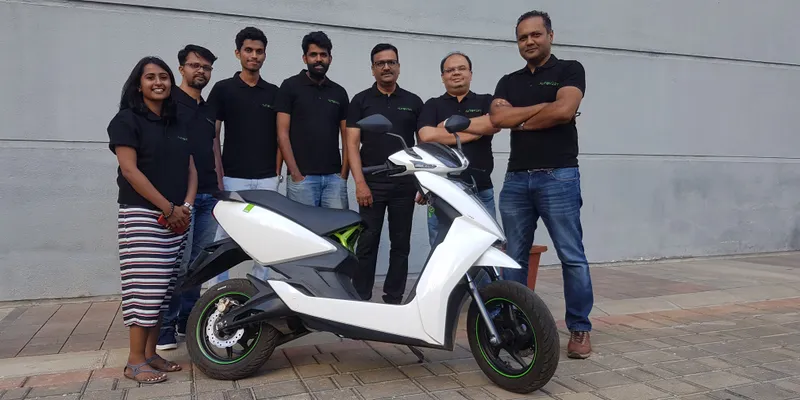
The Autovert team works with Ather and at least 10 percent of the EV company’s vehicles are leased through this startup.
This Bengaluru-based startup is helping businesses amplify their sales by 5x
Bengaluru-based Sales5X helps businesses increase their sales by empowering and equipping salespeople with modern selling techniques. Together, it helps startups and SMEs increase their sales through six to 12 months of training and development. It follows a two-pronged approach, using online courses and in-person training.
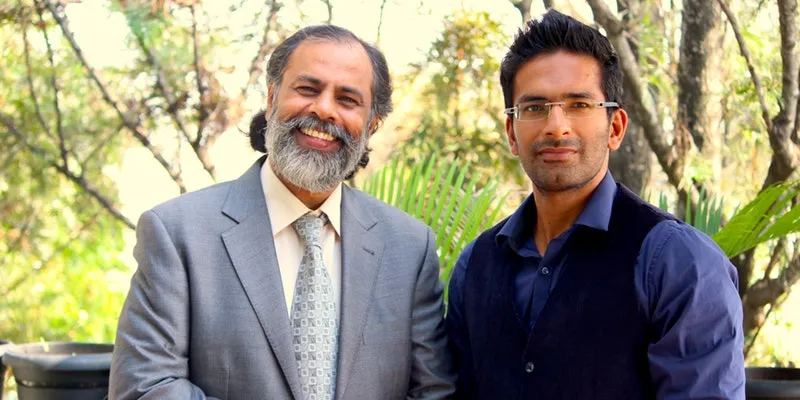
Sales 5x founders, Joseph Dass and Anmol Garg
Z Nation Lab wants to grow the startup ecosystem with micro funds
Founded in 2016, San Jose and Mumbai-based Z Nation Lab provides tech entrepreneurs and startups an ecosystem that can help accelerate their growth. The early-stage accelerator brings together capital, technical expertise, networking, and investors together to create an environment where innovation can thrive. Having funded over 27 startups until now, Founder Amit Jain tells us how the accelerator is helping grow the entrepreneurial ecosystem.
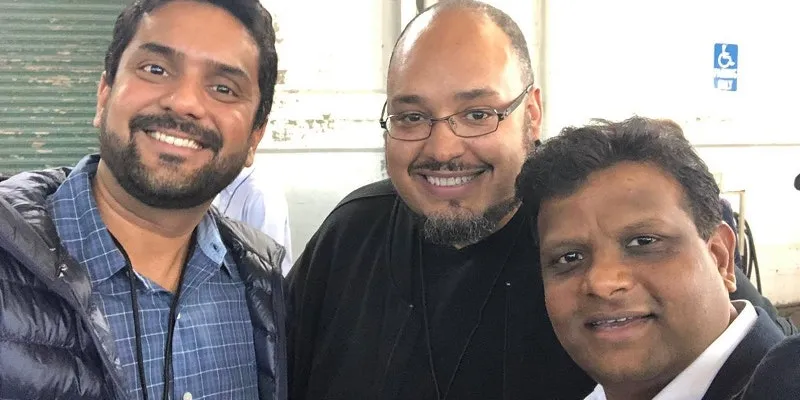
(from left) Amit Jain, founder of ZNation Lab, along with colleagues and Venture Partner Sunil Ranka (extreme right)
Singapore-based logistics startup Ezyhaul is driving to India
Ezyhaul was founded in April 2016 by Mudasar Mohamed, Raymond Gillon, and Nicky Lum. The startup helps businesses manage their domestic and cross-border transportation needs. In a video interview with YourStory, Co-founder Mudasar Mohamed reveals what makes India such an important market and their future plans.

Nicky Lum, Raymond Gillon, and Mudasar Mohamed of Ezyhaul
(Edited by Saheli Sen Gupta)








